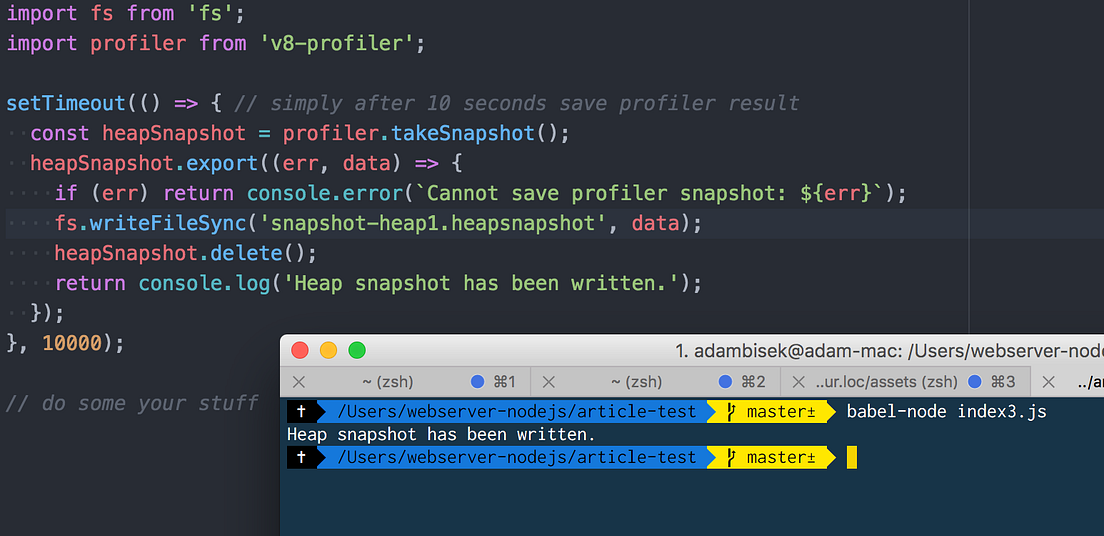

If I run yarn mycli init, this logging message doesn't show up in my code, but if I ever need it for any debugging reason, I can just add debug equals mycli star and see that match up with mycli init, which I have over here. By default, this debug message does not show up when I run this code. Instead of console.logging, I can say, "debug parsing args." I can say, "parsing flags" here as well. For example, if I'm running my commands in here, I can say that I want to log out my args and my flags. Then I can use this as an essentially better console.log. For example, I can say, "mycli init" over here. For example, here I'm in the init command. I should also be able to add the debug module and go to any one of my commands. If I wanted to see stuff that's related only to mycli, I can print that out as well. It would only print out the oclif-related stuff. For example, if I only wanted to see oclif internals, I can type oclif. The debug environment variable runs on a glob matching algorithm. If there any particular outliers, you might be able to see if you can save some time on some of these execution steps. This actually shows you a key amount of information about which is executing in what order, as well as how much time it takes to execute. If you run debug equals star yarn mycli, you actually tap into the debugging that is set up by oclif by default. Some of the more foolproof way, especially if you're looking into debugging performance, is to add a debugger statement. You can also add a debugger to your statements, but sometimes this doesn't work well with TypeScript.
#Node script debugger code#
However, some code isn't exactly amenable to step-through debugging, in particular code where it's heavily nested loops and you don't exactly know what might be the issue with your code. If I wanted to, I can also type in process.argv and monitor that value over here and see it change over time. I can see that I'm also in dev mode as well. For example, if I'm expecting this to proceed on and evaluate to true, I can see that it did exactly that. I can hover over variables of interest and see what I want to do with that and whether it will execute correctly.

When I run this code, the debugger will actually stop at this breakpoint. For example, I can place a break point inside of this run file. This integration lets you stop and watch any part of your code inside of the VS Code environment.

"start:watch:inspect": "nodemon -inspect index.js" Prior to using Typescript in Node.js, we could plug in a script configuration similar to the following in our package.json: Note: It is important to mention, the solutions presented in this article work if you are using ts-node to run TypeScript in Node.js.

#Node script debugger how to#
In this article, you will learn how to fix that issue. However, developers struggle to set up local debugging configurations when using nodemon. Companies are migrating to TypeScript as the default programming language for their Node.js backend. TypeScript has become an excellent alternative to prevent data type definition issues often found when working with JavaScript.


 0 kommentar(er)
0 kommentar(er)
